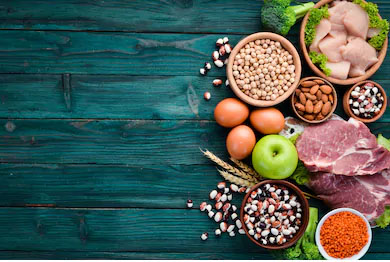Good nutrition is essential at every stage of life to promote growth, maintain health, and prevent diseases. The dietary requirements of individuals vary with age, lifestyle, and specific health conditions. In this article, we explore the ideal nutrition for different age groups, from infancy to old age.
Infants and Toddlers (0-3 Years)
Breastfeeding and Formula Feeding
- Breast milk is the best source of nutrition for infants up to 6 months, providing essential antibodies and nutrients.
- Infant formula can be used when breastfeeding is not an option.
Introduction to Solid Foods
- Begin introducing solid foods at around 6 months.
- Focus on iron-rich foods such as fortified cereals, pureed meats, and lentils.
- Include mashed fruits and vegetables to provide vitamins and minerals.
Childhood (4-12 Years)
Balanced Diet for Growth
- Ensure a mix of proteins, carbohydrates, healthy fats, vitamins, and minerals.
- Incorporate whole grains, lean meats, dairy, and plenty of fruits and vegetables.
- Encourage hydration by drinking enough water and limiting sugary drinks.
Healthy Snacks
- Opt for nuts, seeds, yogurt, cheese, and fruit instead of processed snacks.
- Reduce intake of sugary foods and beverages to prevent obesity and dental issues.
Adolescence (13-19 Years)
Nutritional Needs for Growth Spurts
- Increased demand for protein, calcium, and iron.
- Include lean meats, dairy products, leafy greens, and legumes.
- Support brain function with omega-3 fatty acids found in fish, flaxseeds, and walnuts.
Managing Hormonal Changes
- Limit processed foods and excess sugar to help with acne and hormonal balance.
- Ensure adequate hydration to support metabolism and digestion.
Adulthood (20-50 Years)
Maintaining Energy and Metabolism
- Prioritize a balanced diet rich in whole foods.
- Include fiber-rich foods like whole grains, fruits, and vegetables to aid digestion.
- Consume lean protein sources such as poultry, fish, beans, and nuts.
Disease Prevention
- Reduce intake of saturated fats, refined sugars, and excess sodium.
- Eat foods rich in antioxidants to support immunity and overall health.
- Stay active and maintain a healthy weight through regular physical activity.
Senior Years (50+ Years)
Bone and Joint Health
- Calcium and Vitamin D are crucial for preventing osteoporosis.
- Include dairy products, leafy greens, fortified cereals, and sunlight exposure.
Heart and Brain Health
- Consume heart-healthy fats from olive oil, nuts, and fish.
- Eat fiber-rich foods to support digestion and cardiovascular health.
- Drink plenty of water to prevent dehydration and support kidney function.
FAQs
1. What are the best foods for brain health at different ages?
Foods rich in omega-3 fatty acids, antioxidants, and vitamins B and E help brain health. Examples include fish, nuts, berries, and leafy greens.
2. How can I ensure my child gets enough nutrients if they are picky eaters?
Try offering a variety of foods in creative ways, such as smoothies, colorful plates, and hidden vegetables in favorite dishes. Lead by example and encourage healthy eating habits.
3. How does metabolism change with age, and how should diet be adjusted?
Metabolism slows with age, so portion sizes should be controlled, and more fiber and protein should be included while reducing processed and high-calorie foods.
Eating the right foods at every stage of life helps maintain good health, energy levels, and overall well-being. Adjust your diet according to age-related needs to stay fit and strong.









Leave a Reply